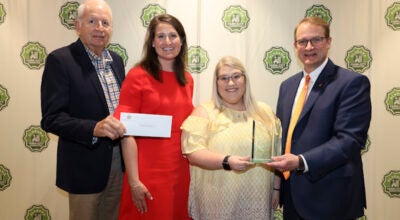Clanton man kills large wild hog in back yard
Published 2:53 pm Monday, November 17, 2014

Dennis Thornburgh estimated the wild hog he killed at his Clanton residence weighed about 350 pounds.
A large wild hog in Chilton County might raise a few eyebrows, but the kind of animal killed by Dennis Thornburgh of Clanton last week could become more common.
Thornburgh was at his home, off County Road 372 in Clanton, on Nov. 13 when he noticed a feral hog in his turnip patch.
“I looked out my back window, and there he was,” said Thornburgh, who owns about 45 acres but saw the hog about 50 yards from his back porch. “I knew that having a feral hog was not something we wanted around here.”
Thornburgh, who lives about 4 miles from Walmart and had never seen a wild hog on his property before, said he initially went outside and made loud noises to try to frighten away the animal.
When that didn’t work, Thornburgh retrieved his .308 bolt action rifle and went looking for the hog, which had moved.
He found the hog a short distance away, still on his property, and shot it once. Thornburgh said the wounded animal charged him.
“It wasn’t a matter of being scared,” Thornburgh said. “I had a rifle with more shots in it, so I just took my time.”
Thornburgh estimated the hog weighed about 350 pounds. He’s having the meat processed.
Patrick Cook, regional extension agent for forest, wildlife and natural resources, said a wild hog of such size would not be “unheard of” in the area, and residents should expect them to become more common.
People who like to hunt wild hogs often release the animals in new areas. The hogs are adaptive and can produce offspring at a rapid pace.
Wild hogs can destroy farmers’ crops and smaller vegetable gardens. They can also be aggressive toward people.
“It’s going to be more and more common,” Cook said. “Now that they’ve been introduced into so many areas, they’re spreading out.
“They’re here, they’re going to be here and they’re going to be a problem.”
For more information about wild pigs, visit the Alabama Cooperative Extension System website.






